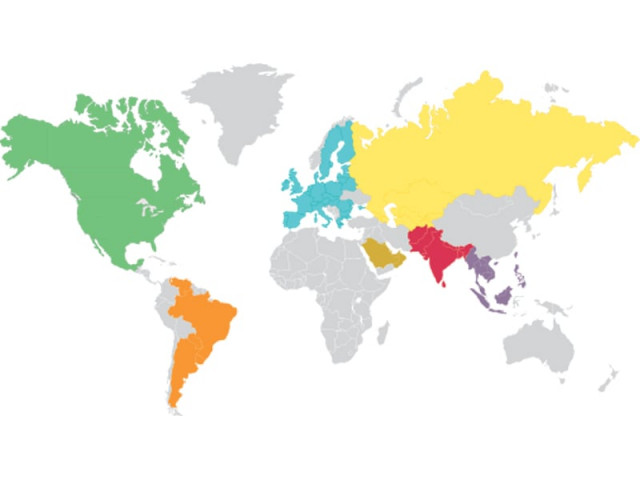Learning from fast growing neighbours
Investment in social policies, reducing inequalities is critical to progress.

Investment in social policies, reducing inequalities is critical to progress. CREATIVE COMMONS
The innovative social policies have proved their utility in these countries that helped to narrow income gaps and improve health and education in poor communities. Pakistan can emulate such effective and inclusive policies for greater economic growth and human development.
For the first time, the three biggest developing economies – China, Brazil and India – are now producing nearly the same share of world output as the leading industrial countries of Europe and North America (HDR 2013). Economic experts believe that by 2020 these three countries together will surpass the industrial powers and will keep growing for decades.

This happens only because there have been much greater reduction in inequality in health and education in the last two decades than in income. These achievements are largely attributed to sustained investment in education, healthcare and social programmes, and open engagement with an increasingly interconnected world.
Furthermore, in the last two decades more than 40 developing countries experienced significantly greater improvement in the Human Development Index. This dramatic change in living conditions of people in these countries is unprecedented in scale and pace.
These successful stories and human development models of neighbouring countries are a greater food for thought and provide an insight into how Pakistan can enhance the skills and productivity of its people through learning from the experience of these countries.
But what has gone wrong with the development model of Pakistan? Why Pakistan is lagging behind?
The recent launch of the “District Education Rankings 2013” by Alif Ailaan and Sustainable Development Policy Institute depicts a stark picture of the state of education and calls for urgent action to end Pakistan’s education emergency. The ranking has also established variations in the standard of education across the country.
According to the rankings, on the scale of 1 to 100 only six districts out of 145 have made above 80 in the education index. In Azad Jammu and Kashmir, Poonch district has scored 82.94. In Punjab, northern districts have performed better, followed by districts in central Punjab.
In Khyber-Pakhtunkhwa, Abbottabad and Haripur districts have been ranked the best and in Balochistan, the least developed province, only 17 out of 30 districts have been ranked marginally above 50.
Balighur Rahman, State Minister for Education and Training, has also acknowledged the dismal education system, saying 25 million children out of school in the country is a national shame.
The healthcare facilities also present a very disappointing scenario. This is the outcome of extremely low expenditure on health over the last 65 years.
Health expenditure in the country remained in a low band of 0.5-0.8% of gross domestic product during 1970-2012, which is very low compared with other developing countries of South Asia.
Not only the health expenditure is inadequate, but also delivery of healthcare facilities is also inefficient. Moreover, primary healthcare and rural health services were ignored and priority was given to hospitals, medical colleges and curative services in urban areas.
When we look at inequality, Pakistan falls in the Human Development Index by 30%, just because of health and educational inequalities. The disparity between the richest and poorest in terms of education and healthcare and poor public infrastructure are primarily responsible for this.
Standing at 146th position out of 187 in the Human Development Index, Pakistan falls in the “low human development” category. Investment in reducing inequalities is now critical and if healthy measures are not taken, millions of people will fall in the poverty trap.
After the 18th Constitutional Amendment, education and health are more of a provincial subject and all provinces should redefine their health and education policies to get the country out of the quagmire. However, to achieve sustained progress, there is a dire need of inclusive and pro-poor policies and significant investments in people’s capabilities, especially through health and education initiatives coupled with improvement in public service delivery.
It is welcome that major political parties including PML-N, PPP, PTI, ANP and MQM at least mention education and health as important sectors that warrant immediate attention in their manifestos. The political parties, which are in power, must realise the need and importance of health and education and serve the interest of people instead of fulfilling vested interest.
The writer is a public policy analyst and consultant at the Sustainable Development Policy Institute, Islamabad
Published in The Express Tribune, July 15th, 2013.
Like Business on Facebook, follow @TribuneBiz on Twitter to stay informed and join in the conversation.



















COMMENTS
Comments are moderated and generally will be posted if they are on-topic and not abusive.
For more information, please see our Comments FAQ